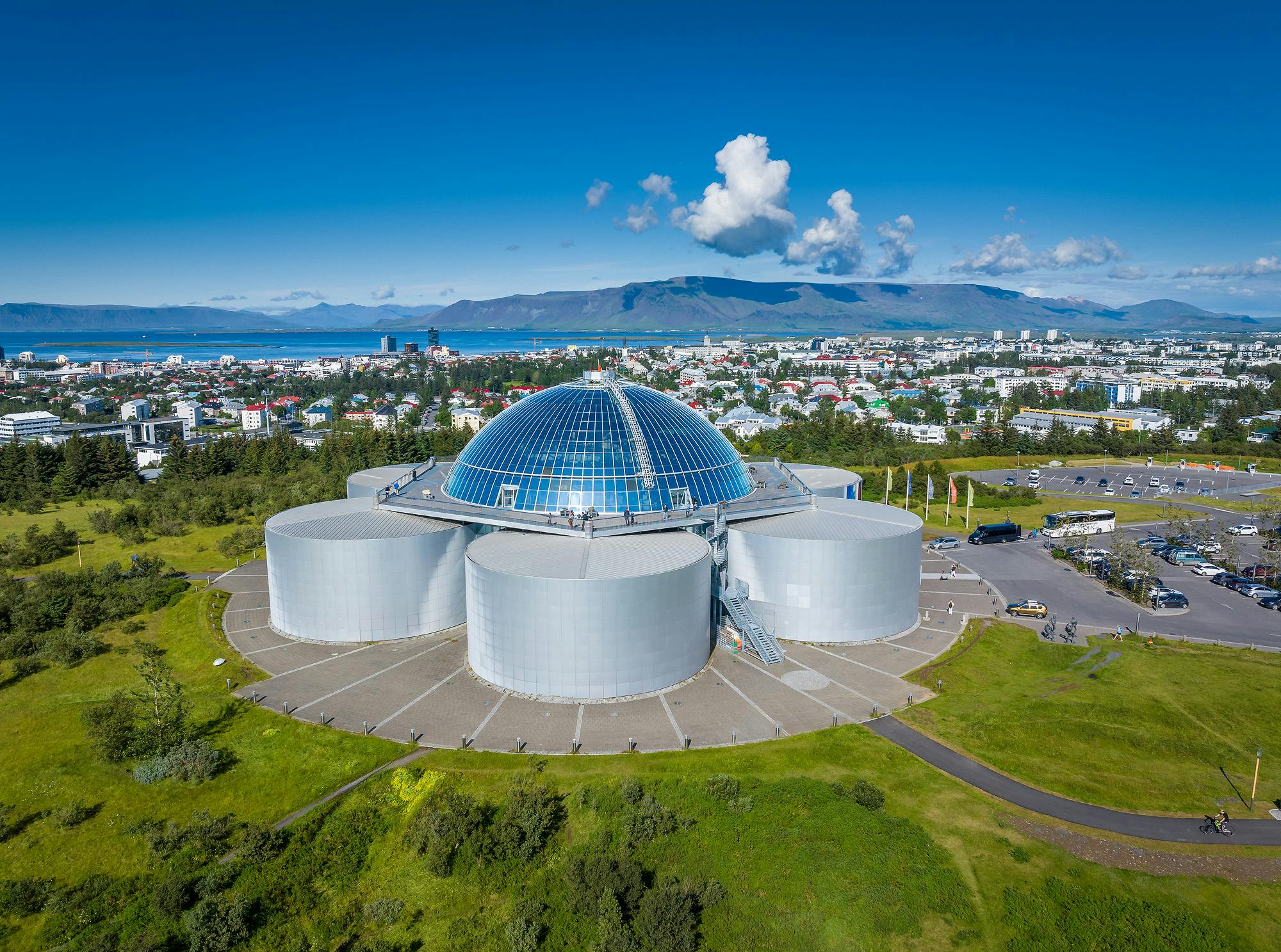
Things To Do In Reykjavík In August
The Icelandic capital in August is so full of things to do that you may need a vacation after your vacation!
As the northern hemisphere moves towards the end of summer, the midnight sun gives way to darker overnights in Iceland, and the northern lights reveal themselves once more. But the days are still relatively long, and with the weather as warm as it's ever going to get here, you can fill your (hiking) boots with amazing outdoor activities.
Pride Parade
Reykjavík's annual Pride Parade has been taking place for a quarter of a century and has its roots in the protests for equality staged by the Icelandic queer community in the early 90s.
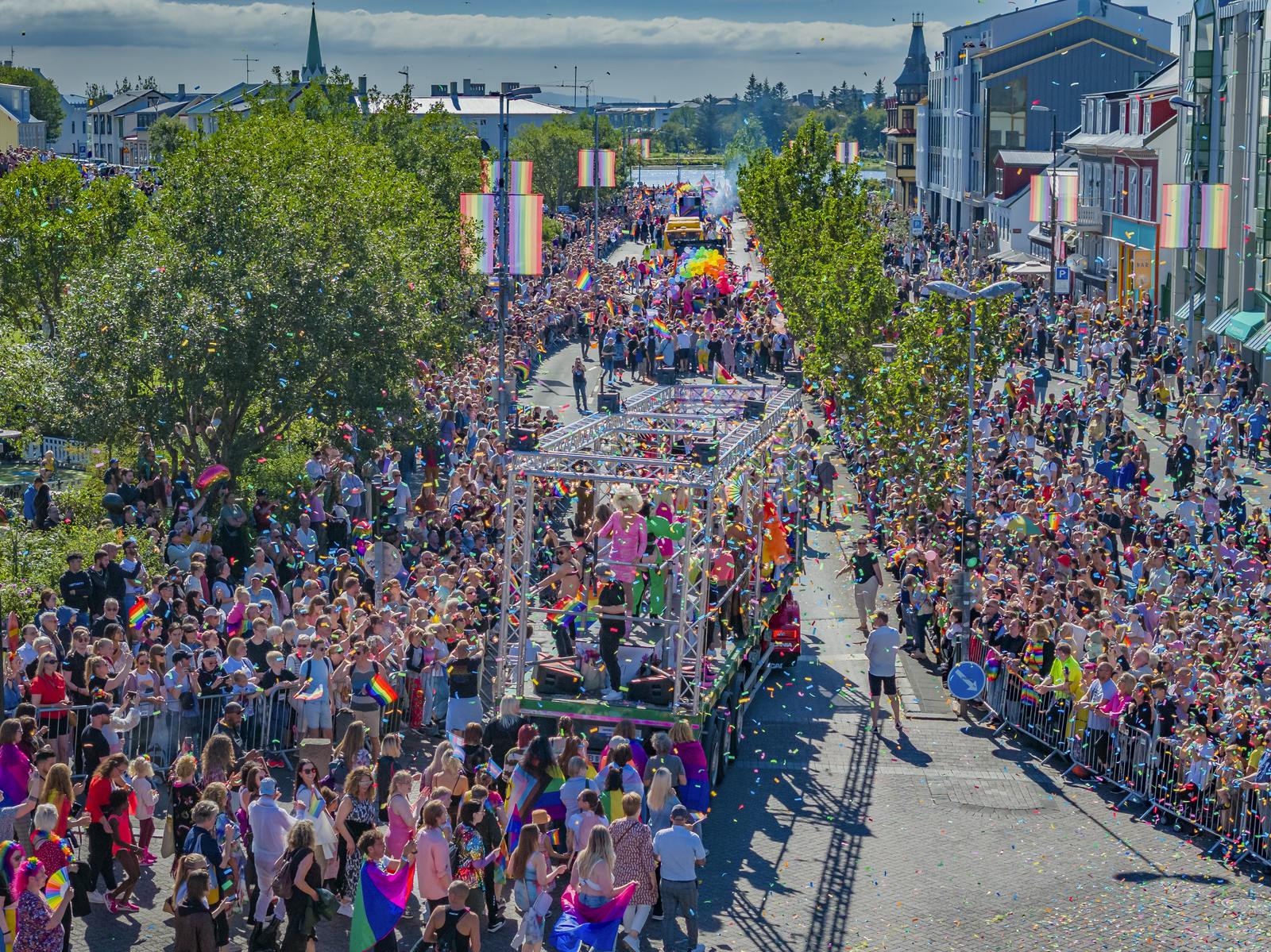
Over the years Pride — known as Hinsegin Dagar in Icelandic, which translates as "Queer Days" — has become an important part of cultural life for Iceland's LGBT+ community. Pride has also been embraced by wider Icelandic society, and is now a moment when people of all identities take the opportunity to celebrate diversity.
The event now attracts thousands of participants from around the world. This year Pride events will take place over six days starting on the 6th of August, with the centrepiece street parade on Saturday the 10th. Come along to join in, and shake a tail feather!
Reykjavík Marathon
If pounding the streets is more your thing than parading in them, you'll be pleased to learn that the Reykjavík Marathon takes place this year on Saturday, the 24th of August.
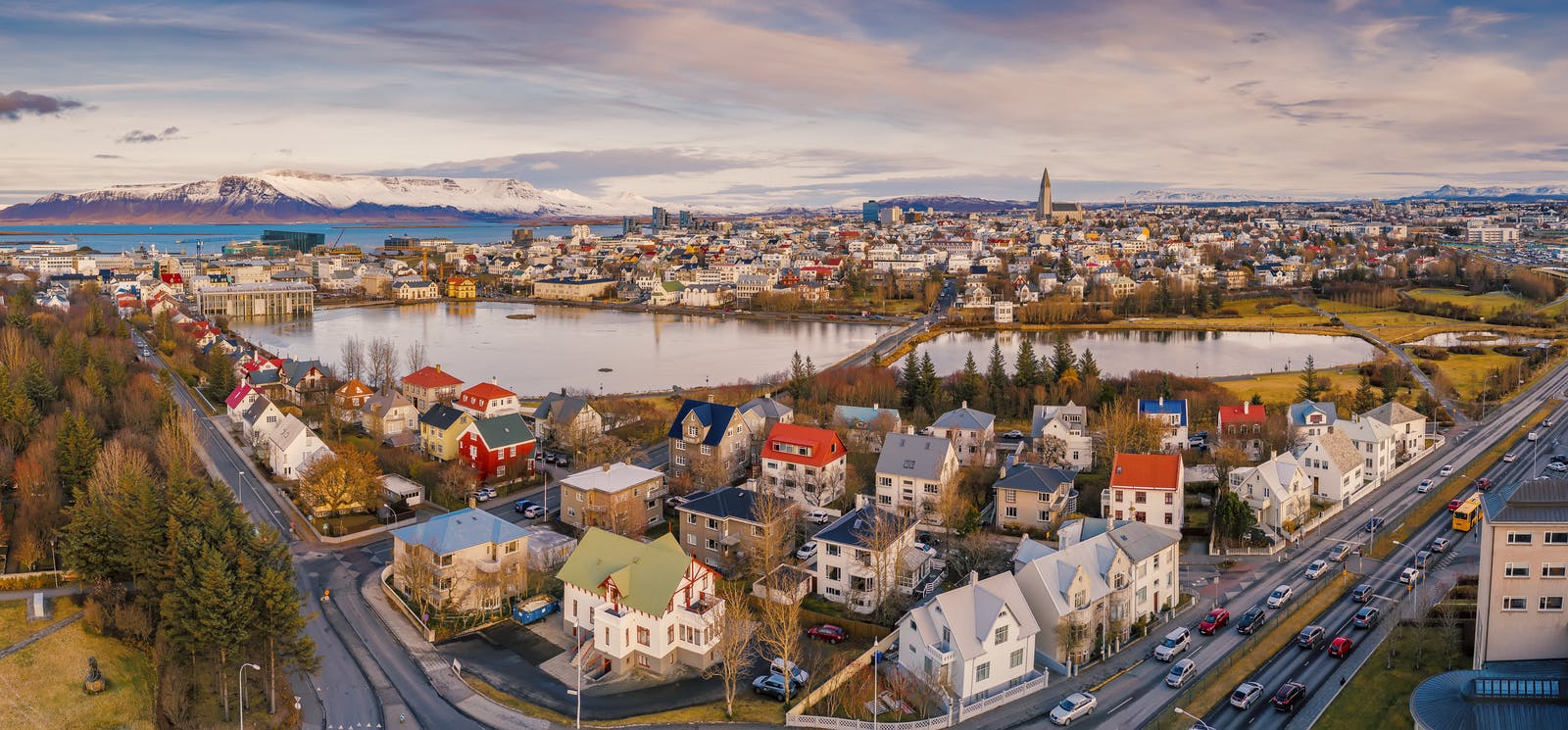
And should the total 42km distance appear a bit daunting, the organisers also offer a half marathon, a 10km race and a 3km fun run. All distances start near Tjörnin — the city's duck pond — and end not far from there.
Included in all entrance fees is a post-run soak in one of the capital's geothermal pools — perfect for soothing any aching muscles! So make the most of the ideal running conditions presented by the time of year, and make this one of your top things to do in Reykjavík in August.
Nauthólsvík: The City Beach
Just a one-kilometre stroll down the hill from Perlan is the geothermal beach, Nauthólsvík. A surprising but welcome find within the city, offering golden sands that are more reminiscent of beaches in warmer climates and a sea that is strangely warm for the North Atlantic.
Nauthólsvík was built around the start of this century, using imported sand to create a conventional European beach, and local geothermal water to heat up the chilly seawater in the bay. Seawalls were constructed, creating a lagoon to contain the warmed water for people to swim in, and on a good day, it can reach around 19°C (66°F) in summer. However, that figure is highly variable; the official advice is to play it safe when swimming and treat the sea at Nauthólsvík as if it might give you hypothermia!
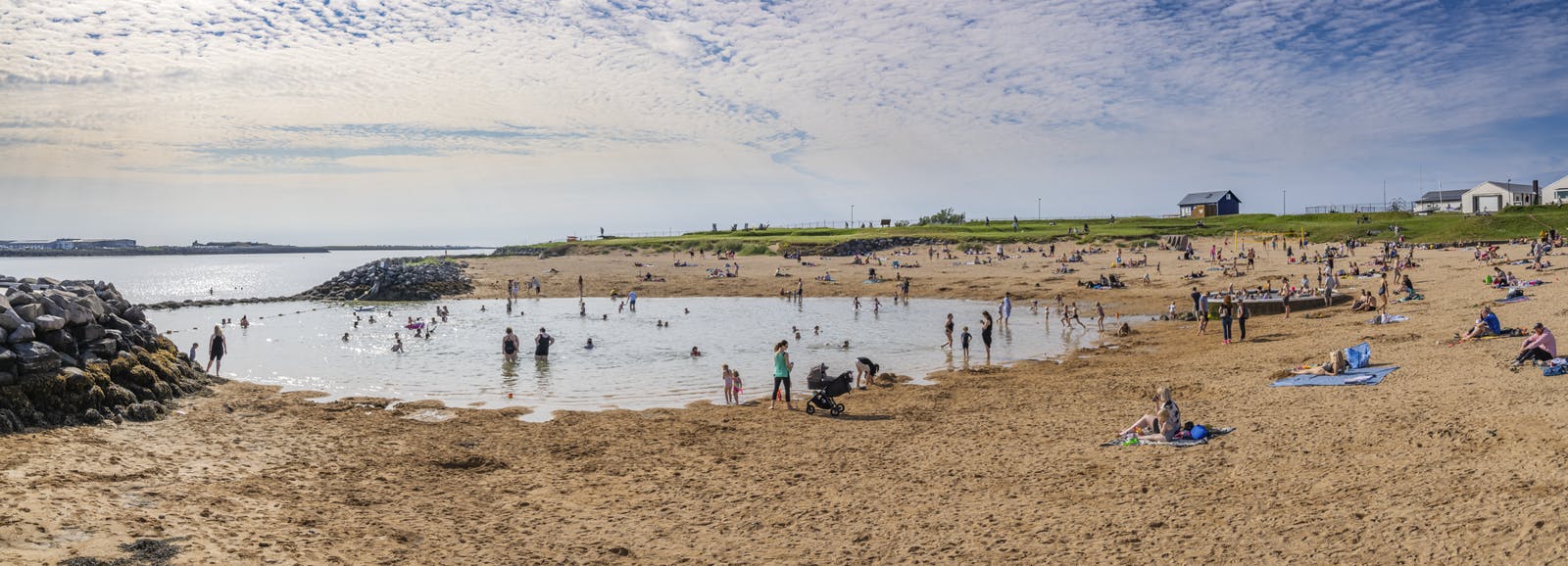
Iceland is known for its dramatic volcanic beaches, but not so much the kind you might sunbathe on and swim off. So add Nauthólsvík to your list of things to do in Reykjavík in August, and make the most of Iceland's warmest time of year. Learn more about the ecosystem and water in Iceland though a variety of fascinating interactive exhibits at Perlan.
Shopworkers and homebodies
There's no shortage of cultural events to provide visitors with things to do in Reykjavík in August.
The first Monday in August is Fridagur Verslunarmanna (Shopworker's Holiday) across Iceland, which this year falls on the 5th. Traditionally, this was a day off work for Icelandic shopkeepers, but now the holiday has been extended to all workers. This long weekend is one that many Reykvíkingurs use to go camping or attend music festivals around the country, such as Þjóðhátíð in the Westman Islands.
In Reykjavík, the Innipukinn music festival takes place at various locations around the city over this weekend, and this year runs from the 2nd to the 4th of August. The festival's name translates loosely as "homebody", and refers to the fact that the event is for festival goers who prefer a warm bed in their Reykjavík home to a damp tent in a field somewhere!
Jazz and Culture
More music is on offer later in the month, when the Reykjavík Jazz Festival takes place from the 27th of August through to the 1st of September.
Bringing together the best jazz and improvisational musicians from Iceland, Europe and the USA, the festival takes place in the city's stunning Harpa concert hall complex as well as various other venues around the city.
On Saturday, the 24th of August, the city enjoys Menningarnott, or Culture Night, a city-wide celebration which sees museums, theatres, and other cultural institutions launch their annual programme of events.
Culture Night events take place in the city's streets, squares, and gardens, culminating in a huge fireworks display at around 11 p.m. The event's slogan, "Come on in!", reflects the Icelandic tradition of hospitality and echoes Menningarnott's purpose of inviting visitors to connect with Reykjavík's vibrant cultural life.
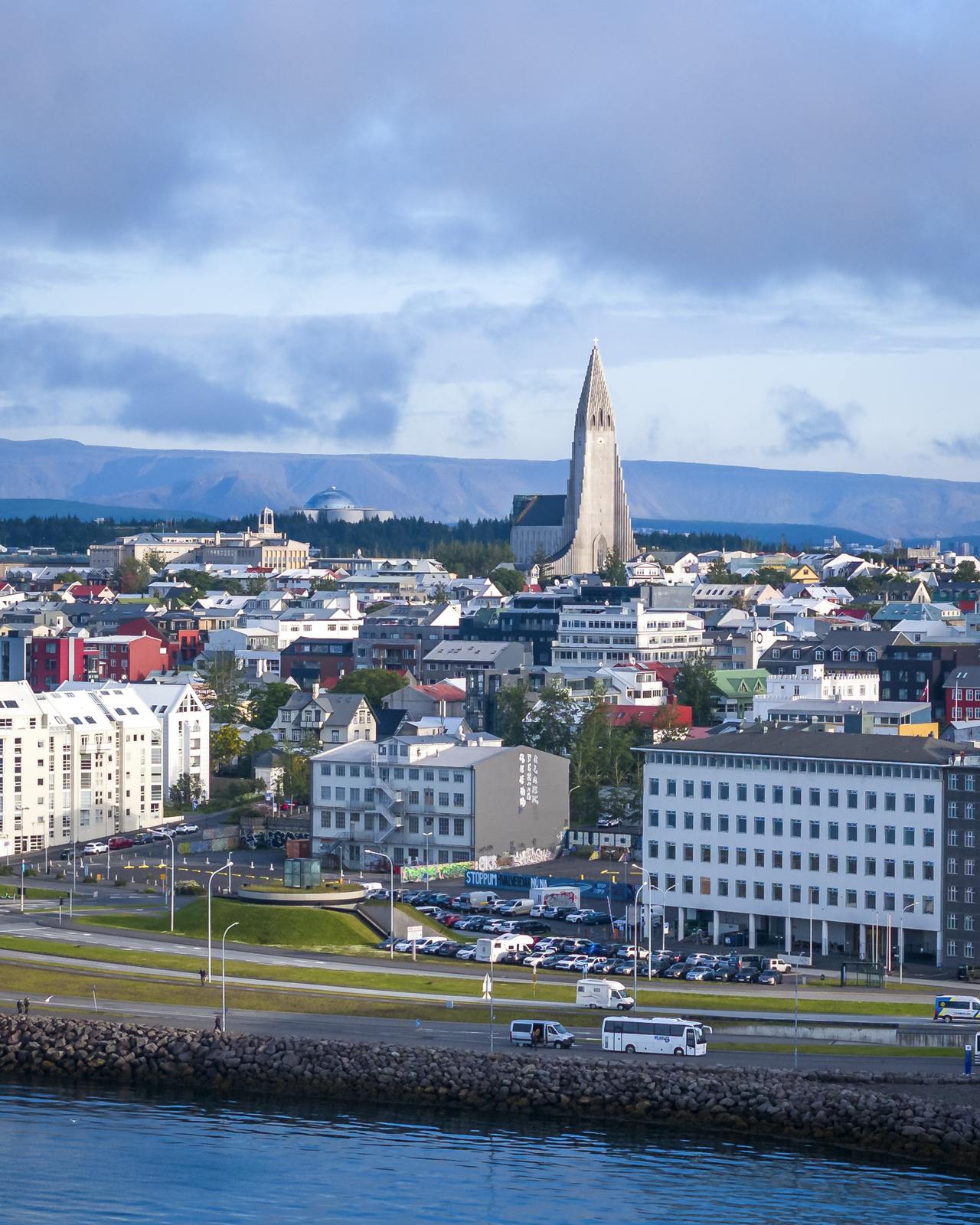
August in Reykjavík FAQ
Is August a good time to visit Reykjavík?
A combination of good weather, long hours of daylight and more to do in our city than at any other time of year make August a great time to visit Reykjavík.
If you are planning a trip to Reykjavík in August 2026, it will be a prime location for experiencing the Solar Eclipse 2026 in Iceland.
Just be aware that these factors, coinciding with the summer holiday season in North America and Europe, mean that August does bring the crowds to Iceland. You won't be alone!
Can you see the northern lights in August in Reykjavík?
The lights — or aurora borealis — are created by solar activity interacting with the upper layers of Earth's atmosphere. The phenomenon takes place all year round to differing degrees, but in order to see it you need dark night skies which are free of cloud.
At the start of August the time between sunset and sunrise is about six hours, and the night is really more like a twilight. But by the end of the month, the nighttime has stretched to more than nine hours and is quite dark at its deepest point.
So you have a much better chance of seeing the lights at the end of August than at the beginning, assuming you're prepared to stay up late! But if the main reason for your visit is to see the aurora, then you'd be much better served coming in January or February.
Whether or not you catch the aurora borealis in the wild, you should check out Perlan's educational and entertaining Áróra exhibit. Experience the full glory of the northern lights in Iceland's only planetarium, where science and art come together to deliver a thrilling, immersive experience.
Do they speak English in Iceland?
Iceland's national language is Icelandic, and it is a descendant of Old Norse, which is what locals speak to each other. However, Icelanders learn English at school from an early age, and the predominance of English in global media and digital spaces means that most Icelanders are highly proficient speakers.
As a tourist, you won't have any problem speaking English with the Icelanders that you are likely to meet. However, Icelanders are rightly proud of their culture, and visitors who use a few Icelandic phrases will always be appreciative. Start with "takk fyrir", which means "thank you", and see how many you can learn and use during your visit.
How to dress in Iceland in August?
Temperatures in Iceland around the end of summer tend to hover around the 10°C–15°C range (that's 50°F–59°F for Americans and particularly old-fashioned Brits), demonstrating that Icelandic weather doesn't always have an icy edge. At this time of year, you're unlikely to see snow unless you venture very high up, although August does see a fair number of rainy days, and Iceland tends to be windy all year round
So the best advice is to pack layers, enabling you to bulk up or strip down as the elements require. And take a practical approach to how you dress, with a focus on staying warm and dry rather than looking fashionable. On that point, make sure you have good waterproof walking boots, or at least shoes; you definitely won't regret it.







